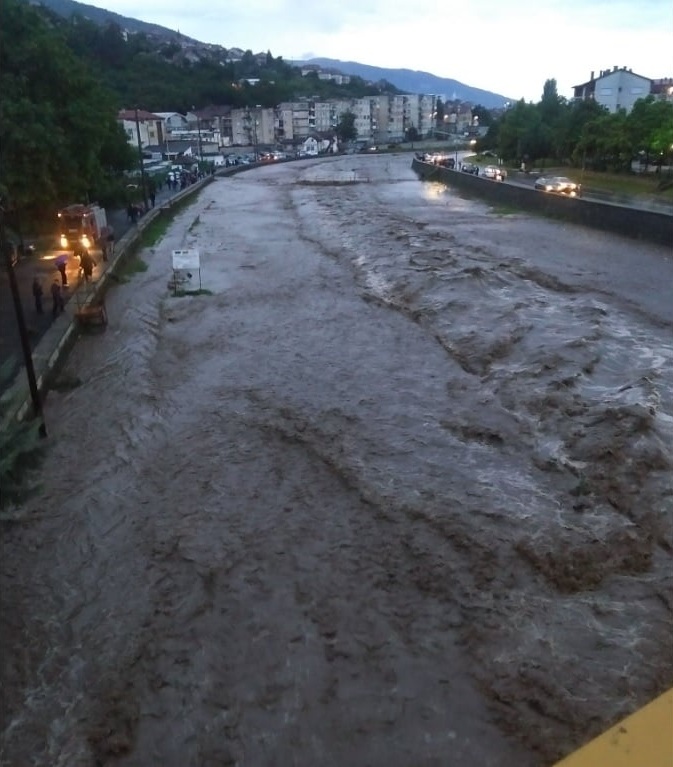The Faculty of Computer Science and Engineering (FINKI) and the Center for Knowledge Management (CKM) conducted a comprehensive analysis of national policies and measures for flood prevention in North Macedonia. This article presents the key findings from the analysis, which examines current practices, challenges, and recommendations for improving flood management at the national level.
North Macedonia is facing increasingly frequent floods due to climate change and urbanization, which raises the need for effective risk management strategies. The national legal framework regulates protection and rescue through the Law on Protection and Rescue, the Law on Crisis Management, and the Law on Waters. The Ministry of Environment and Physical Planning is responsible for implementing the EU Floods Directive, while the Crisis Management Center and the Protection and Rescue Directorate play a key role in coordinating and implementing measures.
Key Measures Undertaken:
✅ Development of national and local flood risk management plans
✅ Enhancement of early warning systems
✅ Improvement of flood protection infrastructure, such as channels, embankments, and drainage systems
✅ Adoption of nature-based solutions to reduce flood risk
✅ Strengthening institutional cooperation and coordination
Despite these efforts, challenges remain. The lack of financial resources, overlapping institutional responsibilities, and insufficient implementation of strategies are among the biggest obstacles to effective flood management.
The analysis was conducted as part of the URBANFLOODS project, which aims to create a shared knowledge base on current policies and measures for flood prevention and mitigation in Southeast European countries. Through this project, best practices are identified, and recommendations are provided to improve national and local strategies for flood risk management.
For long-term risk reduction, continuous improvement of the legal framework, increased investment in infrastructure and technology, and better public education on preventive measures are necessary. Only through a systematic approach and active involvement of all relevant stakeholders can North Macedonia strengthen its flood resilience and minimize the negative consequences for the population and the economy.
 English (UK)
English (UK)  Македонски
Македонски 

